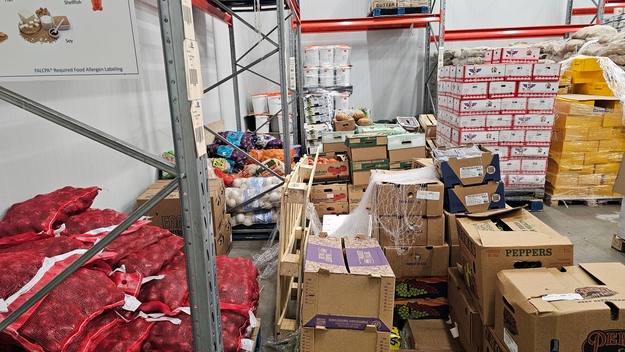Just like other Antillean islands, Bonaire, the smallest of the ABC islands (barely 25,000 inhabitants and destination of around 500,000 tourists), imports almost all its food products. Fresh Supplier Bonaire (FSB), where Wim Meiling started working as a logistics manager last year, is making a very significant contribution to that.
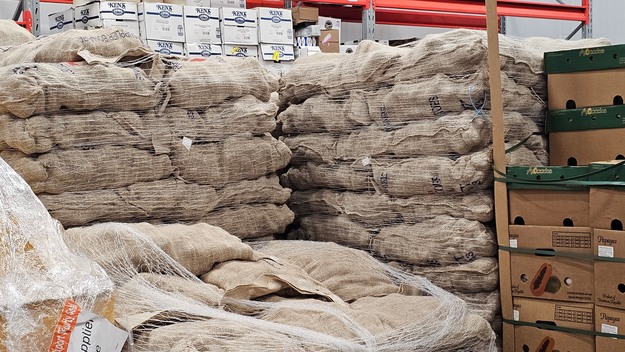
Dutch potatoes
FSB is the logistics branch of the Van Den Tweel Group, a Dutch group with five supermarkets and a catering wholesaler on the ABC islands that transferred its operations to Gassan Azan in 2018. "FSB only operates on Bonaire, but in addition to the group's supermarket, it also supplies the local hospitality and retail sector, which consists of some 25 supermarkets, many of which are run by Chinese entrepreneurs. We have our own butchery and bakery and also supply customers with horticultural products and dry goods," says Wim.
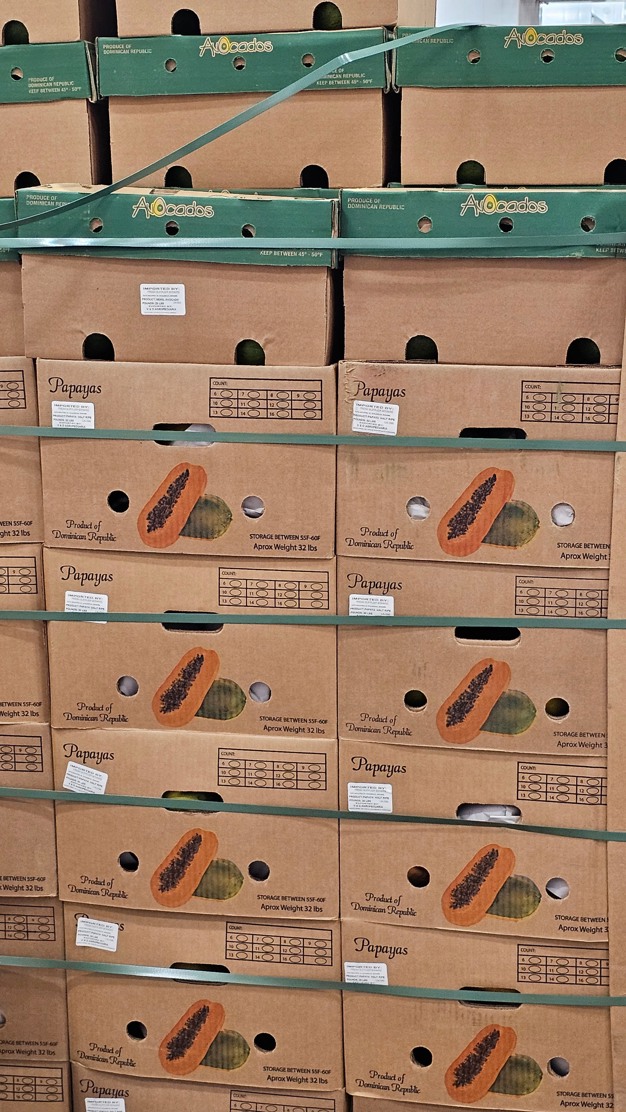
Caribbean papaya
Potatoes and onions from the Netherlands
Most of the fruit and vegetables are loaded at the Port of Miami. There is one arrival a week from the U.S. The reefers ordered by BSF are part-loads, with meat and dairy combined with fresh produce. Some 20% of the fruit and vegetables come from the Netherlands. The most perishable products arrive by air freight, while potatoes and onions are transported by sea, also with one arrival per week. Exotic fruits, including papayas and avocados, as well as some plum and beef tomatoes and onions, are brought in biweekly from the Dominican Republic. And once a week, an open boat from Venezuela (barely 60 km from Bonaire) delivers fruit, especially avocados. FSB does not buy local produce. Horticulture on the island plays no significant role in the food supply.
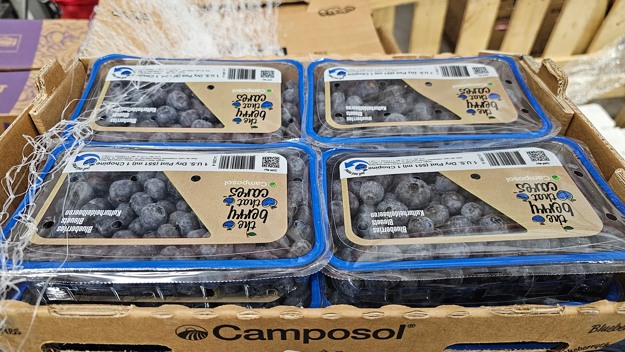 Peruvian blueberries
Peruvian blueberries
Logistical challenges
Given the rather complex logistics chain (the bulk of the produce is loaded in Miami, but that too is a logistics hub for produce coming from the U.S. west and east coasts, Mexico and Central America, among others), and the "big, but also sometimes unreliable suppliers," the quality of the fruit and vegetables on arrival is not always satisfactory.
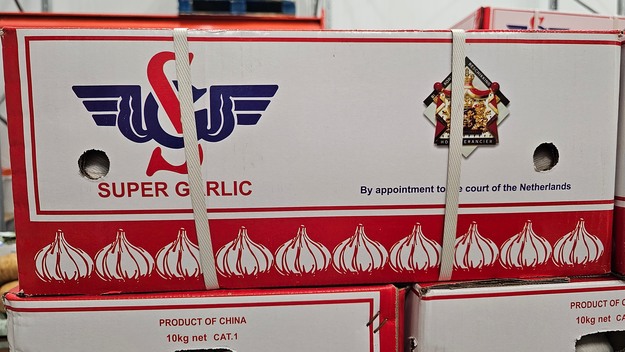 Chinese garlic from Dutch supplier
Chinese garlic from Dutch supplier
"Our quality officer does a physical check and monitors the temperature loggers. In case of a claim, we prepare a photo report that we send to the supplier. On average, claims add up to $1,500 every week, which of course is no small amount. However, since each claim is properly backed, they also tend to be accepted. By the way, we do our utmost to save all the marketable products; we don't just throw anything away. Also, whatever is no longer suitable for the retail, we donate, for example, to the donkey farm a bit further down the road," says Wim.
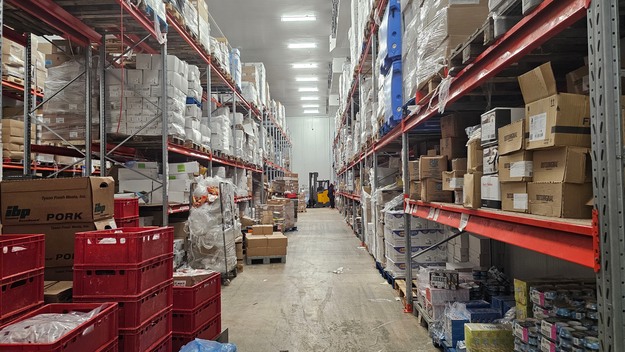
Besides horticultural products, also lots of dry goods
The logistical challenges on Bonaire are even greater than on Aruba and Curaçao, because the cargo ships dock in Aruba first, the following day they call at Curaçao, and Bonaire comes last. And only if the ship has a crane on board, which is rarely the case, as Bonaire does not have its own crane in port. "Thus, transshipment is done on Curaçao on a trailer and that causes an additional day's delay, considering all goes well. Sometimes, you have to wait a week for your wares. By the way, that additional process costs $1,500. Fresh produce is not cheap on the island and everything has to do with transport. Fortunately, logistics costs are generally back to the same level as they were before the coronavirus crisis. A reefer from Europe now costs about $7,000."
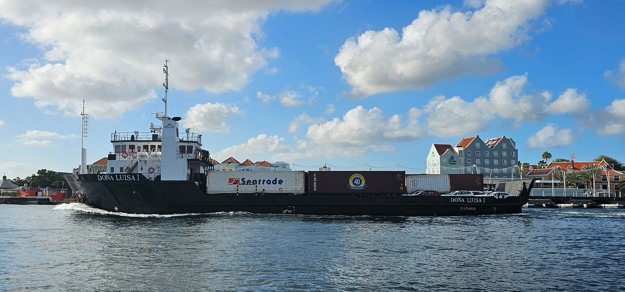
The transshipped containers for Bonaire are put on a chassis in Curaçao and then sailed to the island, because they don't have a crane there
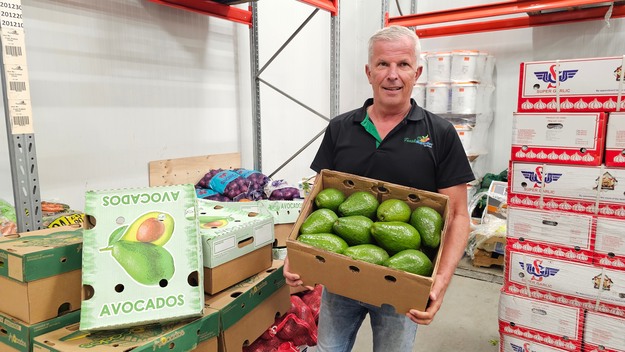 Wim showing some large tropical avocados
Wim showing some large tropical avocados
Few fruits and vegetables on the shopping list
The quality of the products flown in from the Netherlands is undeniably better, according to Wim, but on Bonaire, prices soon become too high to be acceptable if you focus on European products. "The catering industry, and especially high-end establishments, have higher standards than, for example, Chinese supermarkets, but Bonaire doesn't attract as many tourists as Curaçao and Aruba. While tourists demand healthy, tasty and varied food, locals mainly buy staples like potato, rice and meat. They are real meat eaters, and fruit and vegetables are not as present on the shopping list."
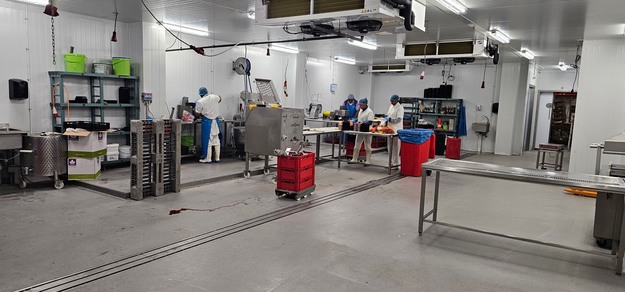 FSB's own butchery
FSB's own butchery
And while in the Netherlands potatoes are increasingly facing competition in the carbohydrate segment from pasta and rice, among others, which also means that the packages on the shelf are getting smaller and smaller, on Bonaire you can still find 25-kilo bags. "They are slightly floury potatoes. We import two containers a month from the Netherlands."
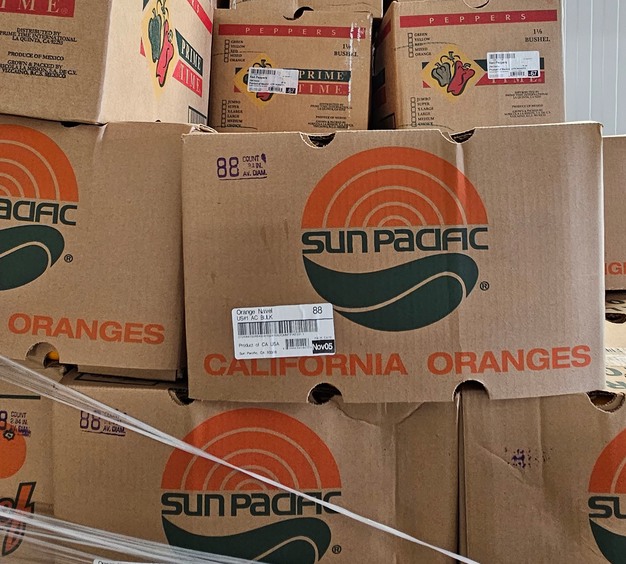
American oranges and Mexican peppers
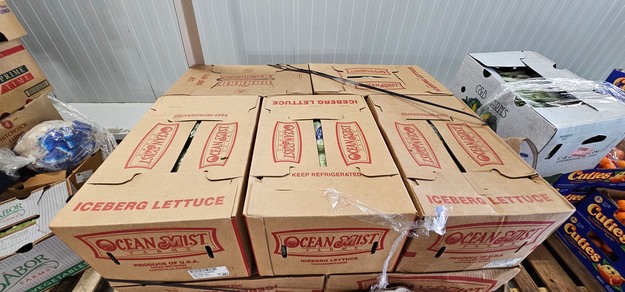
American iceberg lettuce
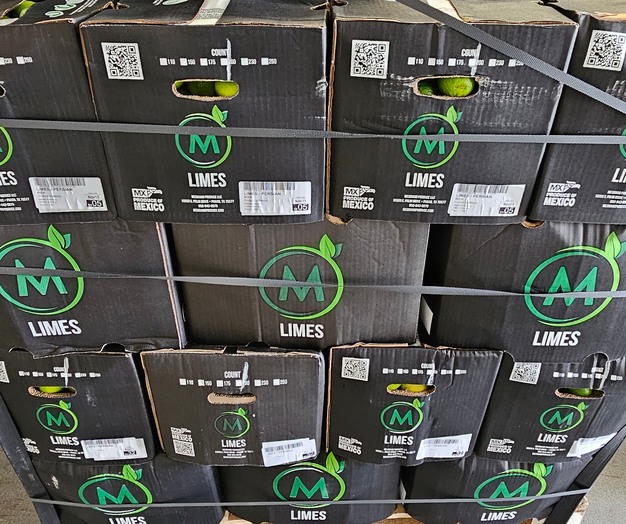 Mexican limes
Mexican limes
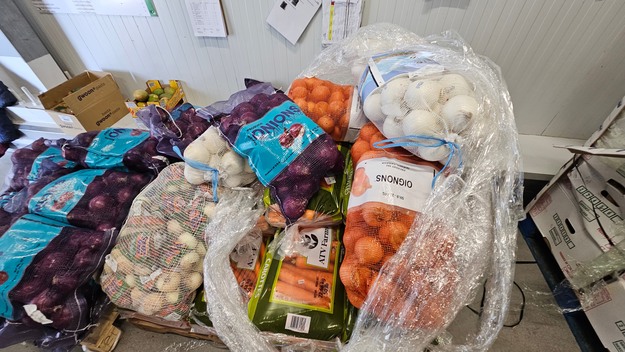
Flattening the curve
Wim says that imports slow down in the summer months, as the peak tourist season runs from December to March. "FSB's turnover in the off-season used to be about half of that in the busy months; however, last year we adopted a different strategy. We'd like to flatten the curve and do away with those peaks. But it's not easy, also because we struggle with the inventory turnover rate, which is relatively low here, mainly because a lot has to be purchased to always have goods available. If you have good reliable suppliers, you don't need to keep as much in stock. We don't have that luxury. Supply from Brazil is particularly problematic in this regard. And this shortcoming is not limited to the goods we sell. If your forklift truck breaks down, you sometimes have to wait weeks for a replacement. Making a phone call and getting help the next day is out of the question. Efficiency is sometimes hard to achieve here, yet you won't hear me complain. I've been on Bonaire for over a year now and every day still feels like a holiday. And if everything was super-efficient, I wouldn't have a job here either," says Wim laughing.
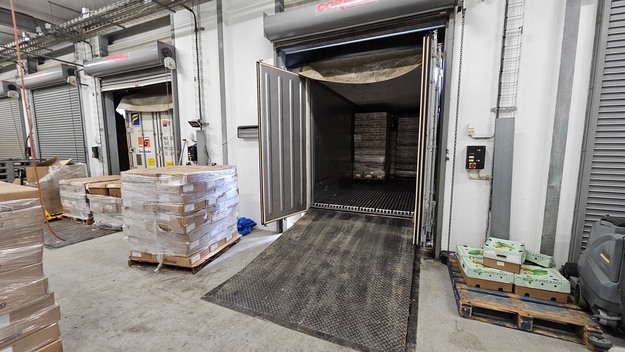
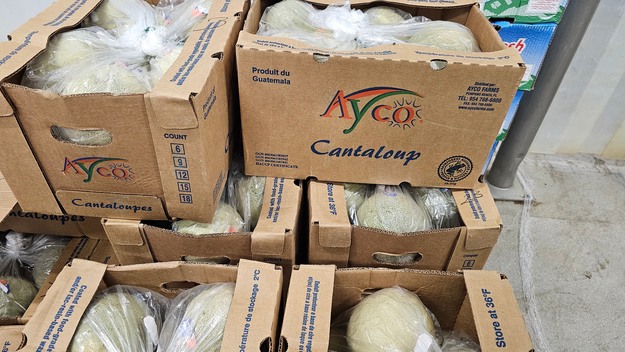
For more information:
Wim Meijling
Fresh Supplier Bonaire
Kaya Industria 24
Kralendijk, Bonaire
Tel.: +599 701 0909
[email protected]
www.freshsupplierbonaire.com
